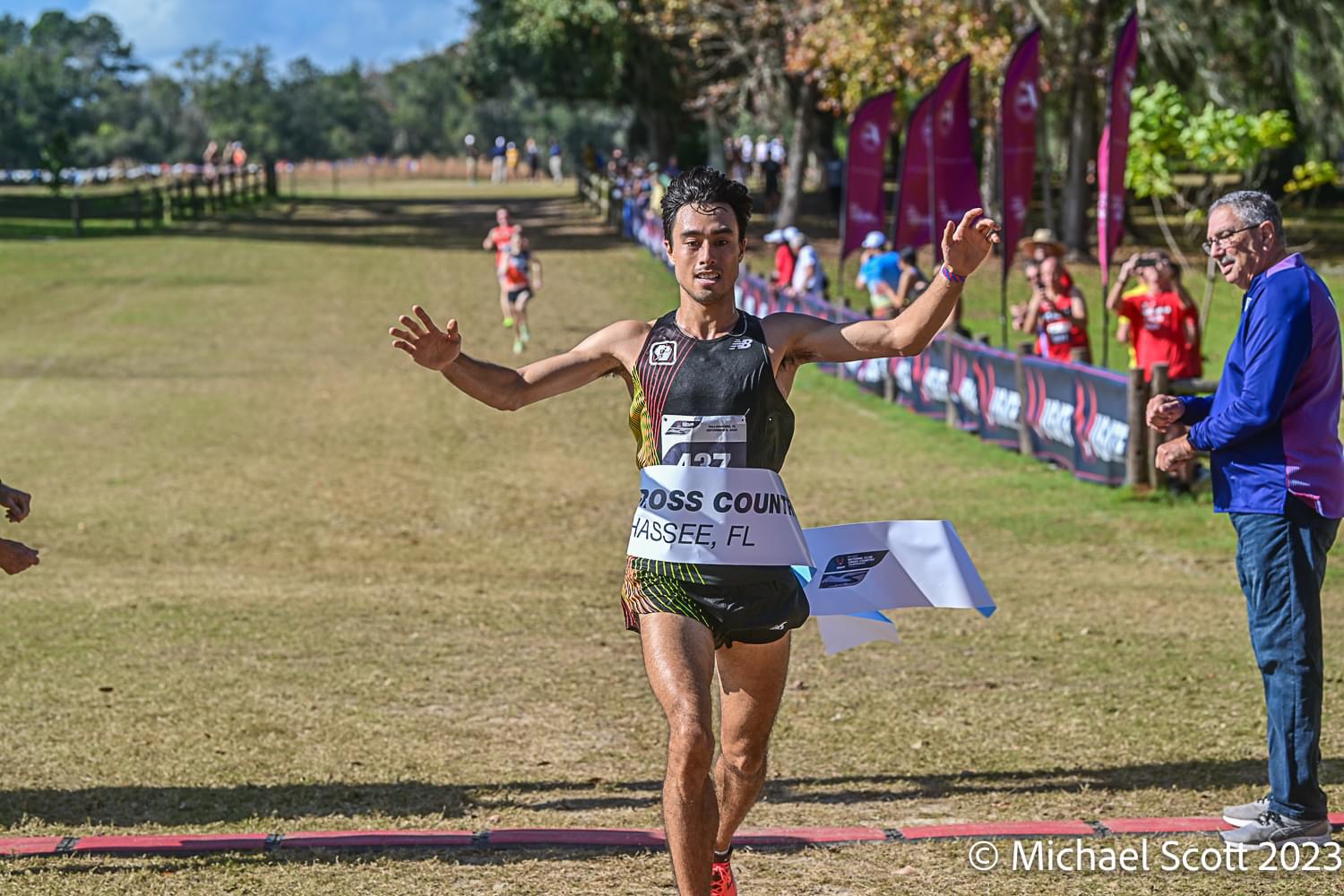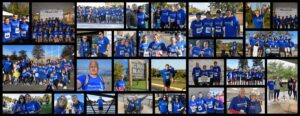You’re at a picnic at a park, and so is another family nearby. Your uncle gets drunk and belligerent, wanders over to the other family, gets rude, starts taking food without asking.
If both families wanted the uncle to stop, who would he be more receptive to?
“When we’re talking about violence against unarmed African Americans, whether by police or civilians, it’s largely been our family trying to get the drunk uncle to stop,” D.C.’s Fred Irby said. “His family is looking at what’s happening, shaking their heads and saying ‘he doesn’t represent us as a family,’ but they haven’t done anything to pull him back.”
These days, Irby is applying that metaphor to the Feb. 23 shooting death of Ahmaud Arbery, who was running in a Glynn County, Ga. neighborhood. After more than two months with no action by local authorities, the Georgia Bureau of Investigated Gregory and Travis McMichael and charged them with murder and aggravated assault May 7.
In an online movement, #IrunwithMaud, that gained momentum following the May 6 release of video footage of the incident and stoked in large part by New York-based activist Alison Désir, runners dedicated their runs on May 8, which would have been Arbery’s 26th birthday, with many running 2.23 miles, commemorating the date of his murder. While there’s no shortage of violent incidents, including deaths, of unarmed African Americans, this was the highest profile, if not the first, involving a victim reported to be exercising at the time, particularly running.
It caught on, with thousands of runners, unable to gather because of physical distancing orders, followed through on social media platforms.
On May 9, the threat of violence toward African Americans was still there, and the tributes, by and large, were waning. It was meant to be a day of recognition, but what happens next is up to individuals, the same as when it came to commemorating Arbery.
For D.C.’s Stephanie Quick, Arbery’s death brought an undercurrent of fear to the surface. It “highlighted a real fear I have as a black runner – that someone will view my presence as a threat and I won’t make it home.”
Alesha Hernandez likes running solo around Bowie, which usually means before dawn or after dusk.
“It has always worried the hell out of my mom and husband,” she said. “My brother, who lives in the Deep South, encouraged me to get a gun. I’ve never held a gun in my life. I don’t intend to.”
It doesn’t change the way Hernandez feels, though.
“I don’t want to become or have my children become the next social media hashtag,” she said.
In terms of social media recognition, Nashieka Moore, a Charlotte resident who travels to the D.C. area frequently for work, sees an inevitable pattern.
“It’s good for about three weeks, then something else happens and takes its place,” she said of various causes. “There are so many bad things that happen, it’s hard to keep track.”
As a black runner, she said, “We shouldn’t have to face feeling fear when we run. It’s the freest I feel — when I run — I feel like I don’t have to deal with everything else. This was a sour reminder that no, you do. Not that it was ever there, but in my imagination it was taken away.”
Danger is always in the back of Hernandez’s mind, but she rationalizes that some worst-case scenarios are unlikely, until she sees them play out somewhere else.
“You worry about this, you fear this, but you don’t honestly expect it to happen,” she said. “Then it does, and it becomes a lot more real.”
She grew up in D.C.’s Brightwood and Takoma neighborhoods, and had a diverse childhood, which only made an experience while in college in North Carolina that much more jarring.
“Your life actually changes when you see a cross burning,” she said. “The 50s and 60s are not as far back as you’d like to think.”
Moore has struggled with how to explain the news to her children, who she describes as taking people at face value, expecting the best intentions.
“What’s heartbreaking is explaining that the table is tilted,” she said, in terms of the application of justice. For two months, the McMichaels were not arrested while local prosecutors considered the case. Gregory McMichael, the older of the two suspects, had worked as an investigator at the local district attorney’s office. “I know people have been victimized while running before, but when it becomes a race thing, that changes things.”
“It’s heartbreaking no matter which way you slice it- it was completely unnecessary, unnecessary force,” Hernandez said. “They could have yelled at (Arbery) to go away. They could have even called him some names, but he wouldn’t be dead.”
Now what?
Although the organizing power of the internet and social media makes it easier for a social cause to gain momentum, participants are easily liable to drift away, inspiring the term “slacktivism” to describe how easy it can be to check a box.
Irby doesn’t dismiss the people who recognized Arbery.
“It wasn’t hard to mention him, to run 2.23 mules, that shows you recognize there’s a problem,” he said.
An active Instagram and Strava user, Irby looked at the runners he followed.
“I looked at all the white people I follow who did a run on May 8,” he said. “Those who didn’t run 2.23 miles or say #IrunwithMaud or something, I decided I won’t follow them anymore. They made a conscious decision to not say that this is their problem. To me the burden of responsibility shifted by their inaction.
“I feel the burden of responsibility is upong all white Americans to address and fight racism in American and one’s inaction to do so makes him or her part of the problem, if not complicit to an extent.”
Ignoring the drunk uncle,
Irby doesn’t have notions of runners solving racism, but he says that acknowledging that people don’t have the same priorities for recognizing an unjust situation can be uncomfortable, but necessary to make any progress.
“I would ask this question to white Americans: Are you willing to do the same thing, reach out to them and say ‘I’m curious why you didn’t run with Maud.’ Explain to them why you ran for Maud.
“Based on their response, if it didn’t match with your priorities or demonstrated an apathy toward racism, are you willing to unfollow them?
It will be baby steps, and if they didn’t know about (the cirumstances around Arbery’s murder), talk to them about expanding their news sources.”
Quick suggests donating to civil rights organizations supporting prosecution of perpetrators of violence against unarmed African Americans, learning about state and local policies, including Georgia’s citizen’s arrest law that the McMichaels claimed prompted their pursuit of Arbery and general education about discrimination, oppression and privilege.
“Talk with and get to know people from oppressed groups,” she said.
D.C.’s Trever Reed stressed not being afraid to have dialogue and try to educate people’s peers about the realities of what is still going on in 2020.
“Honestly, I think one of the only ways to keep the process going and make meaningful change and progress is for non-people of color to have dialogue among themselves, discussing privilege, racism and injustice and speaking out when they see it,” he said.
Alexandria native Jauan Addison suggested keeping the 2.23-mile run as a daily staple.
“No matter how long it takes,” he said. “Yes, we will move forward, but so long as we are moving forward together and keeping awareness, (that) is what matters most.”
In the meantime, Hernandez makes it a point to wave and say hi to everyone she sees while running. She feels even stronger for not taking her brother up on his suggestion to arm herself.
“I know where my strength comes from, I know I have good and positive energy in me, and hopefully that will reach whoever I come in contact with.”
Recent Stories
Looking for our race calendar? Click here Submit races here or shop local for running gear
James W. Foley Freedom Run
Inspired by the moral courage of freelance journalist James Foley, the mission of the nonprofit Foley Foundation is to secure the freedom of Americans held captive abroad unjustly by terrorist organizations or rogue states, and to promote journalist safety.
The
Kensington 8K Race
Since 1994, the Kensington 8K Race has been a favorite DC area fall race – a fun, fast event with beauty, challenge, and excitement. Run it this year on Saturday, September 21, 2024!
The 8K distance is $39, with a






